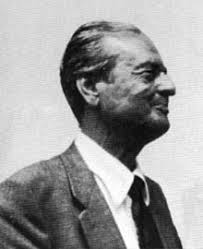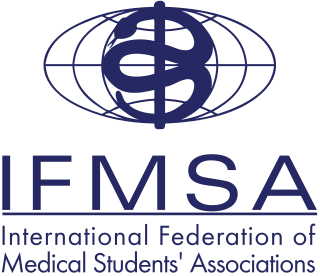Bayesian probability is an interpretation of the concept of probability, in which, instead of frequency or propensity of some phenomenon, probability is interpreted as reasonable expectation representing a state of knowledge or as quantification of a personal belief.

Bruno de Finetti was an Italian probabilist statistician and actuary, noted for the "operational subjective" conception of probability. The classic exposition of his distinctive theory is the 1937 "La prévision: ses lois logiques, ses sources subjectives," which discussed probability founded on the coherence of betting odds and the consequences of exchangeability.
In probability theory, de Finetti's theorem states that positively correlated exchangeable observations are conditionally independent relative to some latent variable. An epistemic probability distribution could then be assigned to this variable. It is named in honor of Bruno de Finetti.
An information system (IS) is a formal, sociotechnical, organizational system designed to collect, process, store, and distribute information. From a sociotechnical perspective, information systems are composed by four components: task, people, structure, and technology. Information systems can be defined as an integration of components for collection, storage and processing of data of which the data is used to provide information, contribute to knowledge as well as digital products that facilitate decision making.

The World Association of Girl Guides and Girl Scouts is a global association supporting the female-oriented and female-only Guiding and Scouting organizations in 152 countries. It was established in 1928 in Parád, Hungary, and has its headquarters in London, United Kingdom. It is the counterpart of the World Organization of the Scout Movement (WOSM). WAGGGS is organized into five regions and operates five international Guiding centers. It holds full member status in the European Youth Forum (YFJ), which operates within the Council of Europe and European Union areas and works closely with these bodies.
Decision theory is the study of an agent's choices. Decision theory can be broken into two branches: normative decision theory, which analyzes the outcomes of decisions or determines the optimal decisions given constraints and assumptions, and descriptive decision theory, which analyzes how agents actually make the decisions they do.
A general authority is a member of the highest levels of leadership within The Church of Jesus Christ of Latter-day Saints who has administrative and ecclesiastical authority over the church. A general authority's jurisdiction is church-wide, in contrast to the responsibilities of a local authority or an area authority, which relate to a particular area, unit, or department of the church. As a group, the general authorities are often referred to as "the Brethren". As of October 2017, there are 109 general authorities.
Japanese studies or Japan studies, is a sub-field of area studies or East Asian studies involved in social sciences and humanities research on Japan. It incorporates fields such as the study of Japanese language, culture, history, literature, art, music and science. Its roots may be traced back to the Dutch at Dejima, Nagasaki in the Edo period. The foundation of the Asiatic Society of Japan at Yokohama in 1872 by men such as Ernest Satow and Frederick Victor Dickins was an important event in the development of Japanese studies as an academic discipline.
In decision theory, subjective expected utility is the attractiveness of an economic opportunity as perceived by a decision-maker in the presence of risk. Characterizing the behavior of decision-makers as using subjective expected utility was promoted and axiomatized by L. J. Savage in 1954 following previous work by Ramsey and von Neumann. The theory of subjective expected utility combines two subjective concepts: first, a personal utility function, and second a personal probability distribution.
The Sociedade Brasileira de Informática em Saúde, abbreviated as SBIS, is a professional society created in November 1986 in Campinas, during the First Brazilian Congress on Health Informatics. It has the mission of promoting the development and the interchange of ideas and results in the fields devoted to the information technologies applied to the health sciences.
The Confederation of European Business, shortened BusinessEurope, is a lobby group representing enterprises of all sizes in the European Union (EU) and seven non-EU European countries. Members of the confederation are 40 national industry and employers' organizations. The current president of the confederation is Pierre Gattaz, while the Director General is Markus J. Beyrer.

The European Scout Region is one of six geographical subdivisions of the World Organization of the Scout Movement, headquartered in Geneva, Switzerland, with a satellite office in Brussels, Belgium.

The International Federation of Medical Students' Associations (IFMSA) is a non-governmental organization representing associations of medical students. It was founded in May 1951 and currently maintains 133 member organisations from 123 countries around the globe.
The Armenian Medical Association, founded in 2002 by Parounak Zelveian, is a professional union of doctors, biomedical scientists and public health professionals in Armenia. ArMA is a non-profit NGO with objectives of promoting high-level medical practice, education and research; fostering advanced ethical behaviour by medical professionals; protecting independence and rights of both doctors and patients.

The RADECS association is a non-profit professional organization that promotes basic and applied research in the field of radiation and its effects on materials, components and systems. The acronym RADECS stands for "RADiations Effects on Components and Systems.
Founded in 1990 in Rome, the European Society for the Study of English (ESSE) is the largest and most comprehensive organization for university teachers and researchers in English Studies, including literature, linguistics, and cultural studies, throughout Europe. The Society has more than 7,000 members. It is an association (Verein) conformable to articles 60ff of the Swiss Civil Code (ZGB) with its seat in Basle.
The European Association of Environmental and Resource Economists (EAERE) is an international scientific association.
The Argentine Association for the Study of Pain is the Argentine chapter of the International Association for the Study of Pain (IASP), a medical professional organization promoting research, education and policies for the knowledge and management of pain. Founded in 1974, the Argentine chapter was the first national chapter of the IASP to be created in Latin America. It organises a biannual academic conference, the Congreso Argentino de Dolor, and was scheduled to be the organiser of the IASP's worldwide conference in 2014.
The International Economic Association (IEA) is an NGO established in 1950, at the instigation of the Social Sciences Department of UNESCO. To date, the IEA still shares information and maintains consultative relations with UNESCO. In 1973 the IEA became a federated member of the International Social Science Council.
The European Citizen Science Association (ECSA) is a membership and networking organization for practitioners and researchers of citizen science in Europe. ECSA was founded in 2014 in Germany and is ruled as charitable and member-based professional organization.





